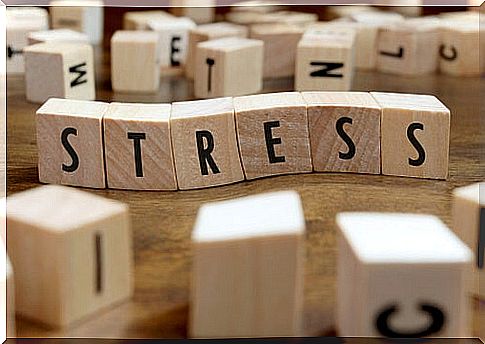How Stress Affects Our Health

Today, a stress-free life seems like a utopia. Although stress is to some extent an adaptive response to circumstances and in this sense can be considered normal, chronic or intense stress activates the nervous system, which is associated with several long-term illnesses.
Constantly being in a state of stress will cause our bodies to give warning signs in the form of illness, injury or a general feeling of unease. Therefore, it is good for our health to avoid excessive stress.
What is stress and what is it for?
Stress is a response that arises from the brain when it is exposed to an external demand, such as a deadline at work or an imminent robbery from which you have to run. As humans, we can also experience stress as a result of mere thoughts, rather than actual events; this is because of our ability to imagine things.

Acute stress, produced by a certain stimulus that we have to resolve, puts our body into a state of activation. This enables us to react faster, more energetically and more concentrated. It creates a tension that prepares us for action.
However, chronic conditions make this activation permanent, causing a constant flow of stress hormones that eventually robs us of our energy. Our hormones get out of balance, which will eventually cause our overall health to deteriorate.
The effect of stress on our health
We will list below some of the main effects of this state of stress and mental strain on our health. However, we want to make it clear that these are mainly generated by a combination of factors.
- Depression and Anxiety: Chronic stress can lead to prolonged depression and anxiety due to hormonal imbalance and the waste of energy.
- Skin problems and hair loss: Constant stress can cause skin rashes such as acne or eczema. It makes other conditions such as or psoriasis worse. In addition, it can cause excessive hair loss, which in some cases can lead to complete baldness.
- Menstrual problems: Stress is closely related to hormones, which, if they are out of balance for long periods of time, can cause menstrual problems, from intensely painful periods to irregularities in the menstrual cycle. In extreme cases, menstruation can even be completely absent.
- Digestive problems: Stress affects the functioning of the digestive system. It makes digestion extremely difficult; the typical ‘nothing’s really falling on my stomach lately’. It deregulates intestinal transit and is also closely related to the development of stomach ulcers, as it increases the production of digestive acids that exacerbate these problems.
- Sleep problems: As we’ve all probably experienced, stressful situations can take our sleep to the point where we really can’t sleep all nights. Problems with insomnia are not only negative in themselves, but expose you to additional damage, as poor sleep negatively affects our performance during the daytime hours.
- Arterial and heart problems: Pressure and prolonged mental fatigue are related to serious illnesses such as high blood pressure and cardiovascular disease. Although these effects only occur in the long term, they are very serious and should be a big stick to reduce stress.
- Weight issues: Experiencing a lot of stress can often cause us to eat compulsively, making our brains unable to recognize that we are full. This is why stress can be linked to obesity and even diabetes.
What can you do to reduce stress?

Depending on the situation and the level of anxiety of each person, it can be extremely difficult to completely get rid of stress. However, there are always things we can do to reduce it as much as we can.
- Exercise is a great ally against stress. Practicing any sport lowers tension and releases energy that we would otherwise keep in, which would deplete our resources. Simply walking two or three times a week will make a big difference, although practicing a more intense sport will be even more effective.
- Another important aspect to consider when trying to deal with stress is our diet. A healthy and balanced diet, which is especially rich in omega-3 fatty acids (such as those found in fish), helps reduce stress. After all, a well-nourished body is a better regulated body.
- Practicing relaxing activities such as mindfulness, meditation, yoga or psychological relaxation techniques are great for reducing stress. Taking some time for yourself, going for a swim or a walk sometimes really makes a difference!
- Surrounding yourself with your loved ones and people who provide psychological support during difficult times or times that make you anxious is one of the most important aspects when it comes to managing stress. After an afternoon with a close friend or family member you love who makes you feel welcome, your stress level will drop significantly. In addition, physical contact and expressing affection have been scientifically proven to improve the health of people suffering from anxiety or depression.









